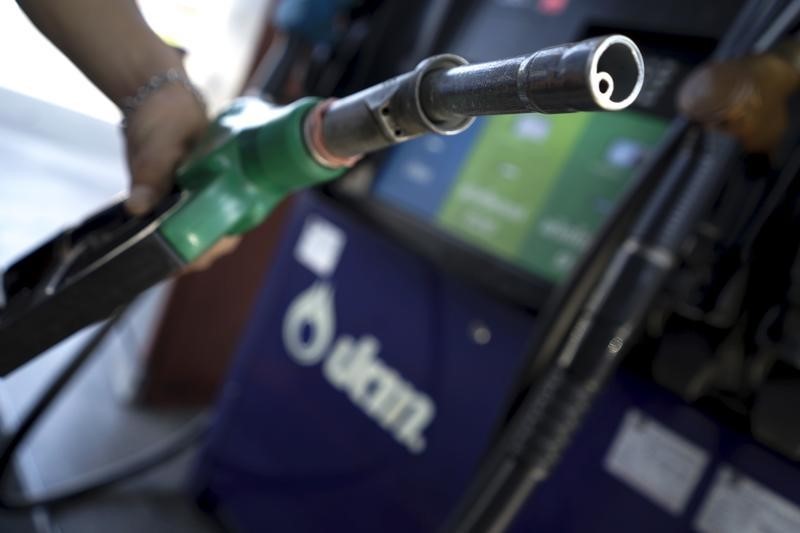By Barani Krishnan
Investing.com -- Oil prices rose on Wednesday after data showing a weekly drop in U.S. crude and gasoline stockpiles.
But a surge in the balances of distillates limited the market’s advance as record high prices of diesel suggested that demand destruction may have begun in the middle-of-the-barrel oil that typically goes into making the fuels so necessary for the commercial transportation sector.
New York-traded West Texas Intermediate crude for July delivery settled up 56 cents, or 0.5%, at $110.33 a barrel.
London-traded Brent for August delivery was at $111.11 a barrel by 2:36 PM ET (18:36 GMT), up 42 cents, or 0.4% on the day.
Oil prices rose as the U.S. Energy Information Administration reported a 1.02 million barrel crude drawdown for the week ended May 20, that came on top of the 3.4-million barrel draw for the previous week to May 13. Analysts tracked by Investing.com had expected a drawdown of just 737,000 barrels for the latest week.
On the gasoline side, the consumption for last week was 482,000 barrels that added to the previous week’s 4.78 million. Analysts had forecast a drawdown of just 634,000 barrels.
Even so, distillate stockpiles rose for a second straight week, according to the EIA data that suggested that record high prices were beginning to cause demand destruction in the commodity used for turning out the diesel and other fuels needed by the commercial transportation.
Distillate inventories rose by 1.657 million barrels last week, on top of the 1.235-million increase seen in the prior week.
Known as middle-of-the-barrel oil, distillates are refined into the diesel that runs trucks, buses, trains and ships, as well as the fuel needed to fly airplanes.
The back-to-back rise in distillate balances jarred with data from earlier in the year that showed virtually non-stop draws in the fuel’s stockpiles each week as the commercial transportation sector emerged as the strongest growth component of the U.S. fuels market.
The bump-up in distillate inventories coincided with the all-time highs in diesel prices seen since the end of April, with a gallon reaching more than $6 at some U.S. pumps now.
“There’s no doubt about it — at $6 per gallon, truckers and other diesel users are beginning to maximize what they get from a tank, cutting unnecessary burn wherever possible,” said John Kilduff, partner at New York energy hedge fund Again Capital. “That’s directly causing a demand destruction in diesel.”
Prices of diesel — along with that of gasoline, the number one automobile fuel in the United States, which is at record highs of above $4.50 per gallon — began rising in the middle of last year when global crude supplies began tightening amid the economic rebound from the coronavirus pandemic.
Since then, the Russia-Ukraine crisis has heightened the supply deficiency in virtually all forms of energy products, sending prices of these commodities to multi-year highs in many countries.
In the United States, the closure of several refineries during the height of the coronavirus pandemic has reduced US oil refining capacity as well, compounding the problem.
To alleviate the supply crisis and tamp down fuel prices — or at least prevent them from going ever higher — the Biden administration has taken to withdrawing oil from the nation’s emergency stockpile called the Strategic Petroleum Reserve.
As of last week, the so-called SPR’s balance stood at 532 million barrels, the lowest in almost 35 years, as the administration stepped up its weekly drawdown from the reserve to six million barrels from a prior three million.
